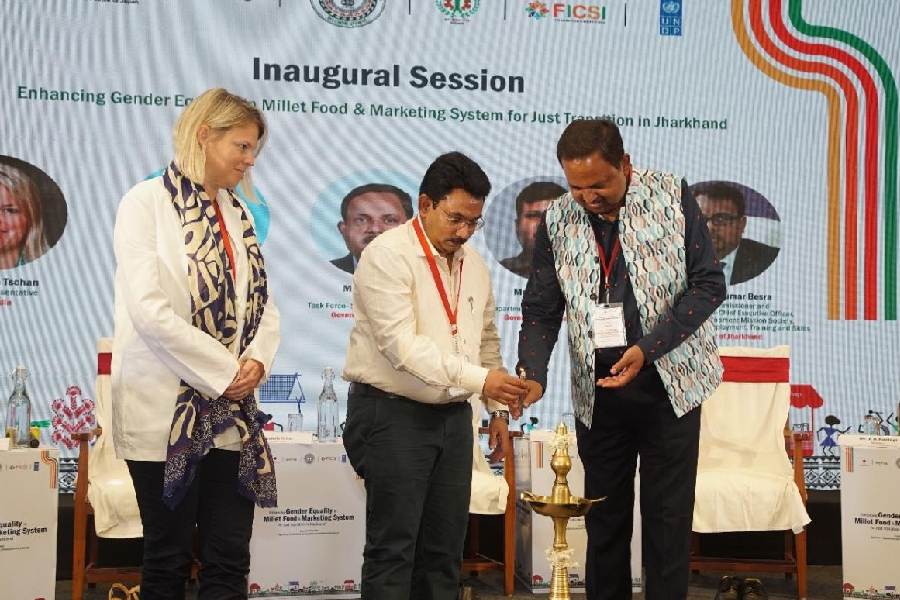Jharkhand, which is mostly dependent on coal energy, has started focusing on improving marketing of millets. This is also with an eye on transitioning to alternative livelihoods in keeping with a UN initiative focused on involving women.
Just Transition is a United Nations initiative, supported by the Government of Japan Supplementary Budget 2022. In India, the project is being carried out in partnership with various ministries, Nabard and Arya.ag.
The concept of Just Transition is broadly defined as ensuring that no one is left behind or pushed behind in the transition to low-carbon and environmentally sustainable economies and societies.
Retired senior forest official A.K. Rastogi, who heads the task force on sustainable Just Transition of Jharkhand, emphasised the importance of a fair and inclusive energy transition and said: “Around 18 out of the 24 districts of Jharkhand are directly dependent on coal energy. In this context, it is crucial that we plan and create alternate livelihoods through a shift to renewable energy, investment in infrastructure and skilling of workers.”
Addressing a workshop on “enhancing gender equality in the millet food marketing system” for Just Transition in Jharkhand, Rastogi said: “Millet cultivation is aligned with the objectives of Just Transition as these crops require less water and inputs. Women farmers must be provided with the necessary skills and certification to take the processing of millet-based food products. Proper packaging and hygiene are also necessary and there is a need to work on these.”
The workshop was part of the broader Just Transition initiative by the United Nations Development Programme (UNDP).
“The initiative aims to facilitate a smooth and equitable transition from coal-based economies to sustainable alternatives, with a specific focus on opportunities for women. The workshop highlighted the importance of gender equality within the millet value chain and explored sustainable practices that support local communities,” said a UNDP official.
Jharkhand agriculture, animal husbandry and cooperatives secretary Aboobacker Siddique, who was the chief guest of the workshop, said: “Millets have long been a staple in Jharkhand, with our tribal families traditionally serving millet rotis. The government has formulated the Jharkhand Millet Mission and has made a budgetary allocation of ₹100 crore towards the same.”











